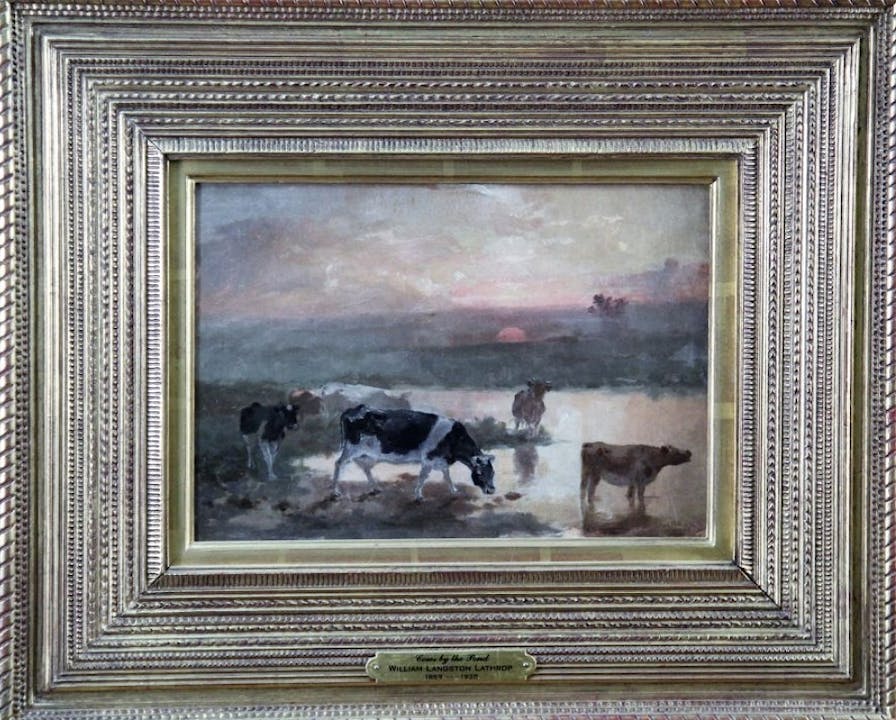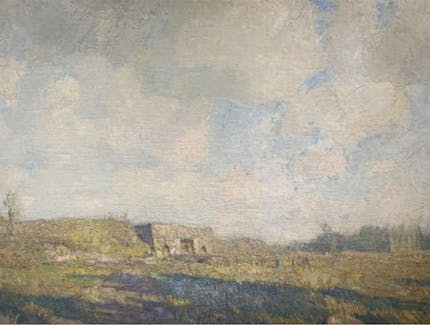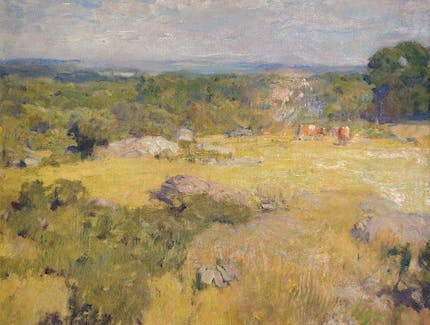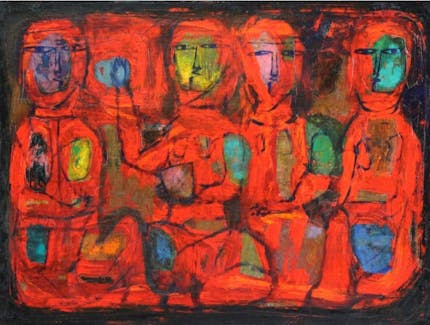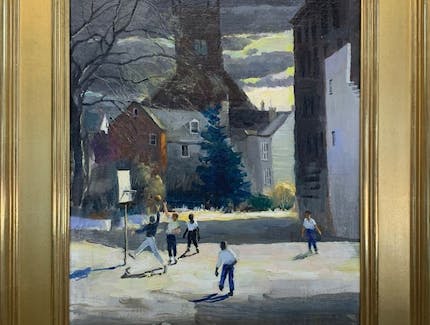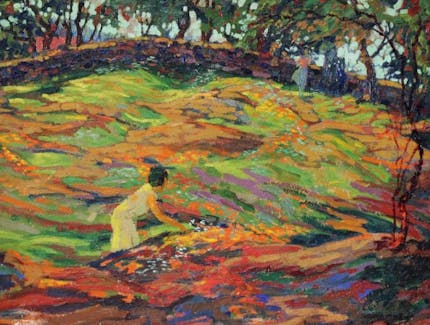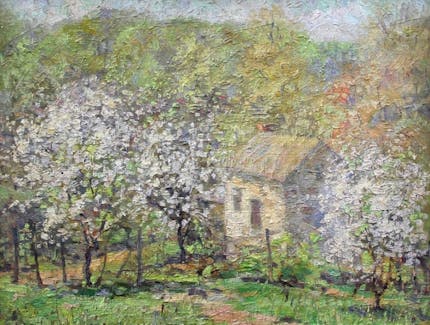Cows
William Langston Lathrop
oil on canvas, 8.5 x 12.5
L/L
Founder of the New Hope Pennsylvania Impressionist Colony, Lathrop was known as one of America's premier landscape painters in the late 19th and early 20th centuries. His style was Tonalist, which coincided with Impressionism but did not include the bright sunny colors associated with Impressionism. He was not innovative in style, but much admired for the strength and skillfully conveyed mood of his canvases. Born in Painesville, Ohio near Cleveland, Lathrop was raised on a farm, and as a boy had an appetite for art. Although Lathrop never took formal training he learned from many artists, most especially John Twachtman, J. Alden Weir, and Henry Ward Ranger. He also painted with William Merritt Chase. In 1888, he married Annie Burt. After entering the annual exhibition of the American Watercolor Society and winning the top honor, the Evans Prize, there was suddenly a market for his work. In 1899, Lathrop brought his family to New Hope, Pennsylvania. He lived at Phillips Mill on the Delaware River about forty miles north of Philadelphia. For more than thirty years he had a successful career, and his home became the center of the growing art colony, which attracted many luminaries including Henry Snell and Daniel Garber. Lathrop was the unofficial father figure, and his wife the leader of the social life. Lathrop built a boat called "Widge" from which he painted marine scenes, sailing up and down the Mid-Atlantic seaboard. A companion on one of these trips was Albert Einstein, who was teaching at Princeton. In 1938, Lathrop perished in a hurricane off Montauk, Long Island where he had anchored his boat to escape the storm.

